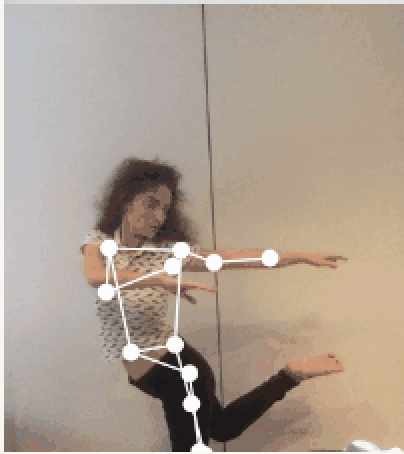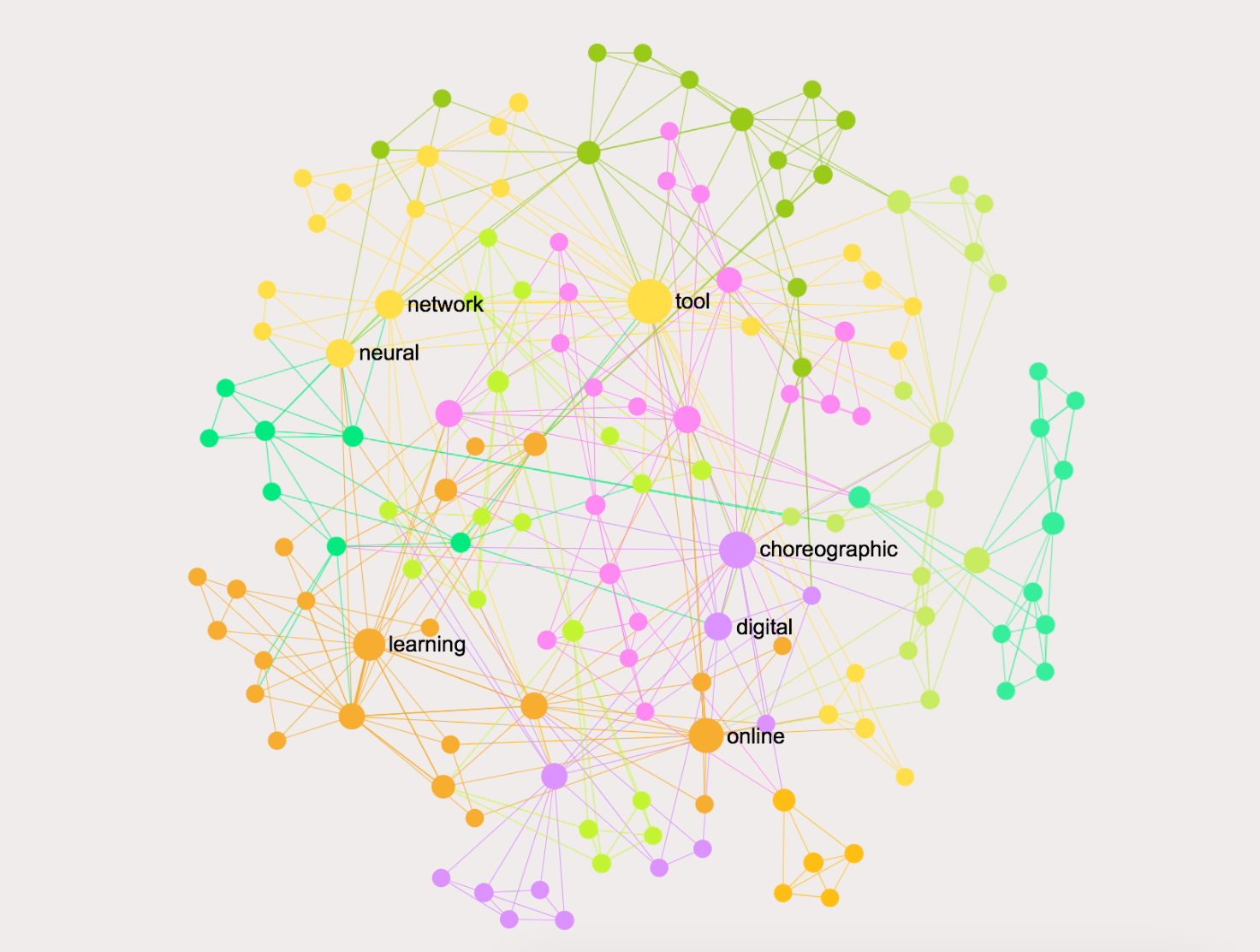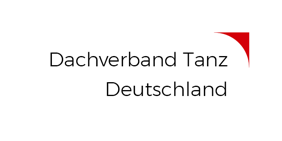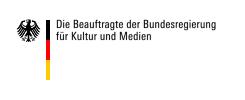Deep Originals
In Deep Originals* I planned to rethink my choreographic archive using AI-technology. The title was a word play alluding to deepfake. Such computer generated videos and images based on deep learning algorithms, that teach themselves how to solve problems with large data sets, are used to swap faces in digital content to make the fake appear real. My intention was to use AI to discover deeper patterns in my own choreographic approach.
With the question about authenticity of one’s artistic voice in mind, I planned to use my artistic archive compiled throughout the years and with the help of AI, discover something that exceeds my naked eye or my analytical capabilities.

image1: produced by PoseNet, running on tensorflow.js
During the first few weeks of the research a myriad of questions opened up concerning the expectations to train AI to create simulations of my past works to inform my new work or to produce unprecedented work and results.
I aimed for making an AI a collaborator that would help me discover deep structures in my work that escape the human eye and create a digital model of how I could describe my choreographic approach.
As the computer vision presents problems working with the video - high computational and storage resource requirements, I reconsidered the entry point into my archive. Among videos, images, audio recordings and text I decided to start with the latter.
In order to not be dependent on or subject to only commercial uses of these technologies that are increasingly mediating my everyday life it is crucial to address the sharing aspect of the research - access, exchange, non-expertise use. As well as inbuilt gendered bias in the mentioned tools, which when addressed properly would offer a chance of becoming more usable for larger number of people.

Currently I am working with Infranodus - text-network analysis tool. I am focusing on the textual part of my archive and am comparing the discourse on my artistic practice depending on the context - grant applications, public announcements, social media platform comments and posts, private chats and similar.
 image2: Infranodus working session screenshot (analysis of the very description on the left side of the website)
image2: Infranodus working session screenshot (analysis of the very description on the left side of the website)Funded by the Federal Government Commissioner for Culture and the Media in the programNEUSTART KULTUR, [aid program DIS-TANZEN/ tanz:digital/ DIS-TANZ-START] of the DachverbandTanz Deutschland.
Gefördert durch die Beauftragte der Bundesregierung für Kultur und Medien im ProgrammNEUSTART KULTUR, [Hilfsprogramm DIS-TANZEN/ tanz:digital/ DIS-TANZ-START] des DachverbandTanz Deutschland.



https://madewitholga.be/pages/Deeporiginals